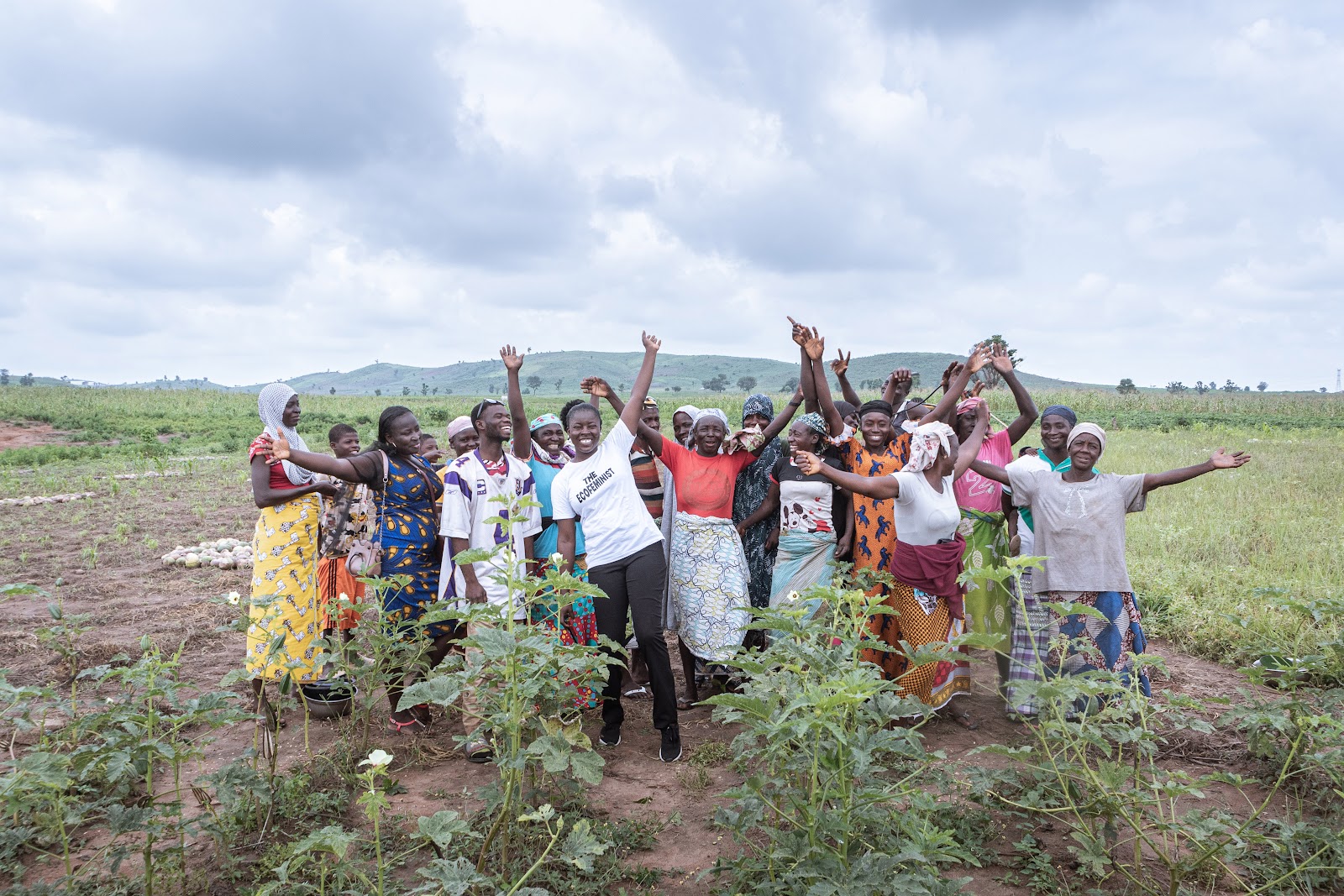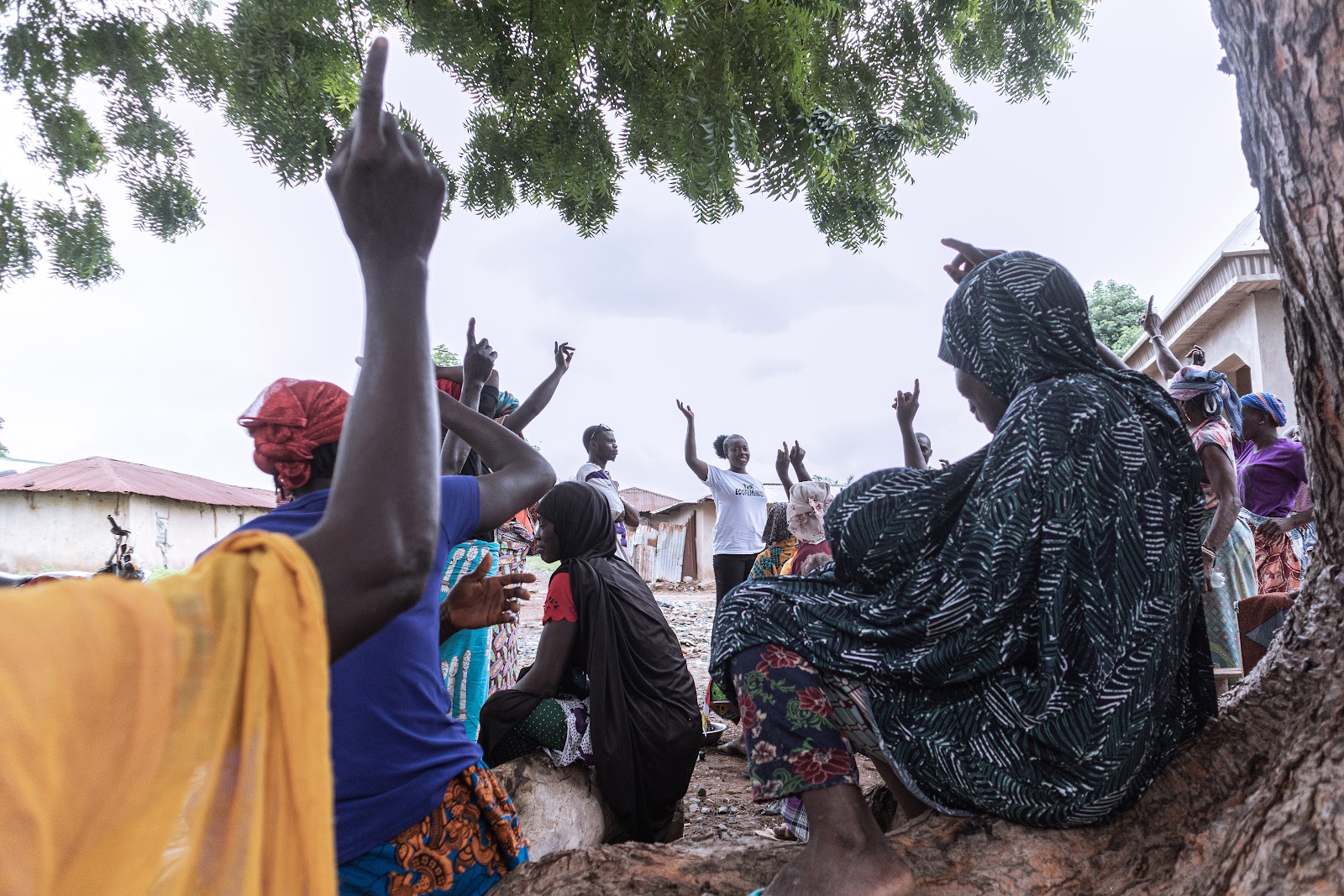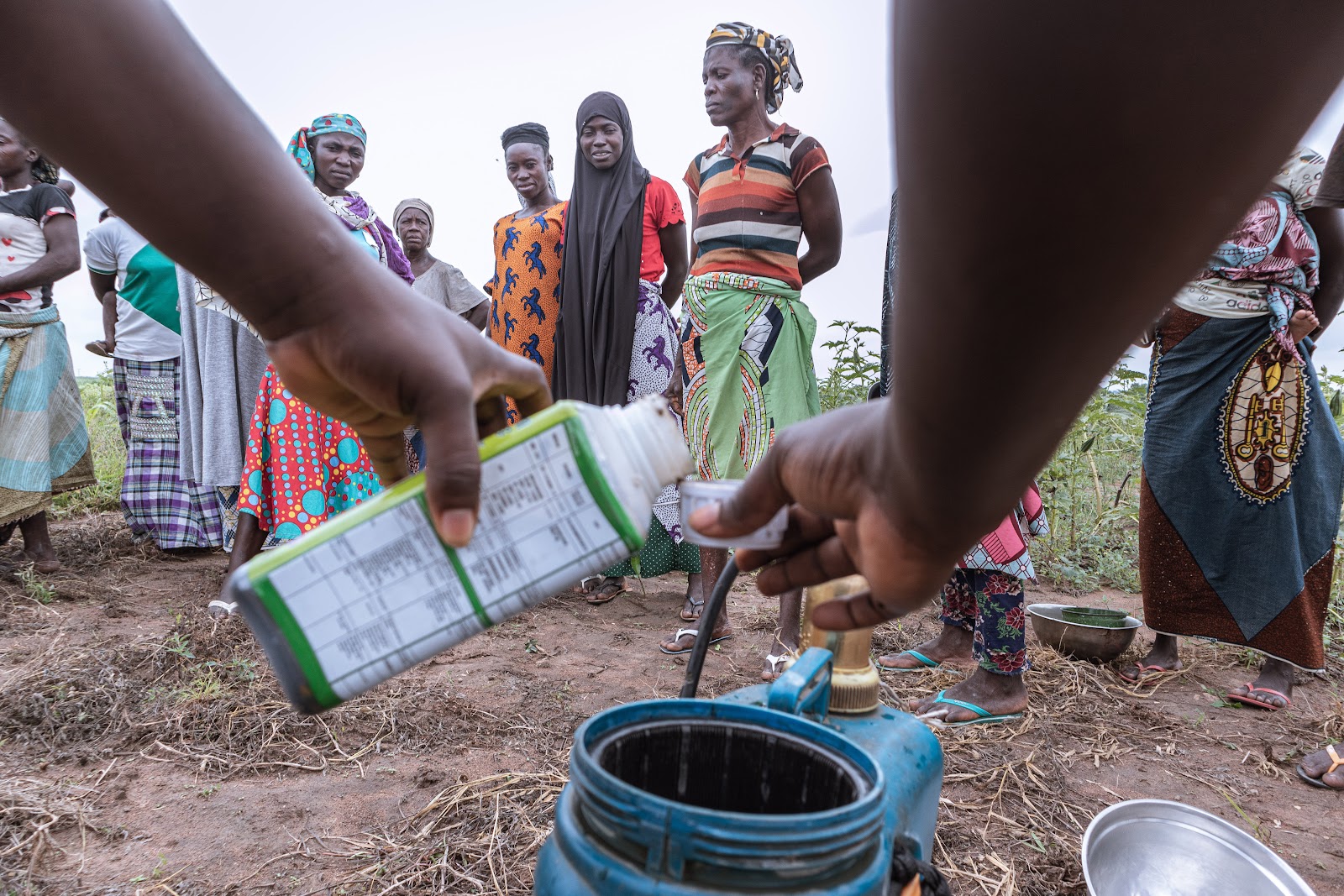If you want to tackle climate change, give women access to use and control resources. If women are left behind on these things, the more it becomes difficult in solving the defining issues of our time.
Women’s ability to use and control resources are determinants in tackling climate change.
 |
| Photo: Oladosu Adenike and the women during our project exhibition on giving rural women access to organic fertilizer. All photo credit: Oke Moses |
why this project of ours is very important is because, without resources of such, it will be difficult for women to improve production which will affect the availability and accessibility of agricultural products. One of the questions I asked those women during the enlightenment process was that "if any of them have been able to apply fertilizer since the beginning of the cropping season and their answers were no which shows the extent that women(farmers) are disadvantaged in several ways since they mostly do not have land to sale in the purchase of resources needed or neither do they have land as a form of collateral to access a loan that would help to increase productivities compare to their male counterpart.
 |
| Photo: how many of you have not applied fertilizer to your farm this year? All hands were up |
Thus, across societies, the impacts of climate change affect women and men differently. Women are often responsible for gathering and producing food, collecting water, and sourcing fuel for heating and cooking. One of the ways to build resilience against the impacts of climate change is to give women access to resource control. Women’s ability to access and control resources have a wide-reaching impact on food security, eliminating hunger and poverty, reducing gender-based violence, and tackling climate change. Likewise, according to the UN Food and Agriculture Organization, if women had the same access to productive resources as men, they would increase yields on their farms by 20-30% which could raise total agricultural output in developing countries by 2.5 – 4%.
 |
| Photo: our practical session; women leading the way to their farm. |
The International Union for the Conservation of Nature (IUCN) carried out what is understood to be the biggest and most comprehensive study yet of the issue and found out that gender-based violence is pervasive, and there is enough clear evidence to suggest that climate change is increasing gender-based violence – where environmental pressures increase gender-based violence increases. Also, from previous studies, girls who spend more time fetching water have fewer days in school and may even drop out – climate change fuels violence against women.
 |
| Photo: Oladosu Adenike training the women on the application process of the organic fertilizer |
Women are the backbone of our food systems. It is realized that women small farmer-herders have just 14% holding rights on land where they farm, even though they constitute 70-80 percent of the agricultural labor force. Yet, women produce 60 to 80% of the world’s food but yet account for 70% of the world are poor. It is estimated that if women had the same access to finance, land, technology, and training advice as men, they could contribute significantly to the achievement of the actualization of the sustainable development goals. This is why I Lead Climate Action Initiative is carrying out such an important project for women in rural communities to have access to use and control resources through the support of Amos Trust International as one of the fellows. This alone will be one of the single greatest impacts in transforming our food systems, building climate resilience, strengthening indigenous knowledge through the availability of resources, and strengthening women's bargaining power and financial status which will aid in the eradication of child brides. It is a solution that seeks to achieve multiple goals.
By Oladosu Adenike (oladosuadenike32@gmail.com), a climate justice advocate, ecofeminist, and eco-reporter.





0 Comments
We are open to listening to your comment.